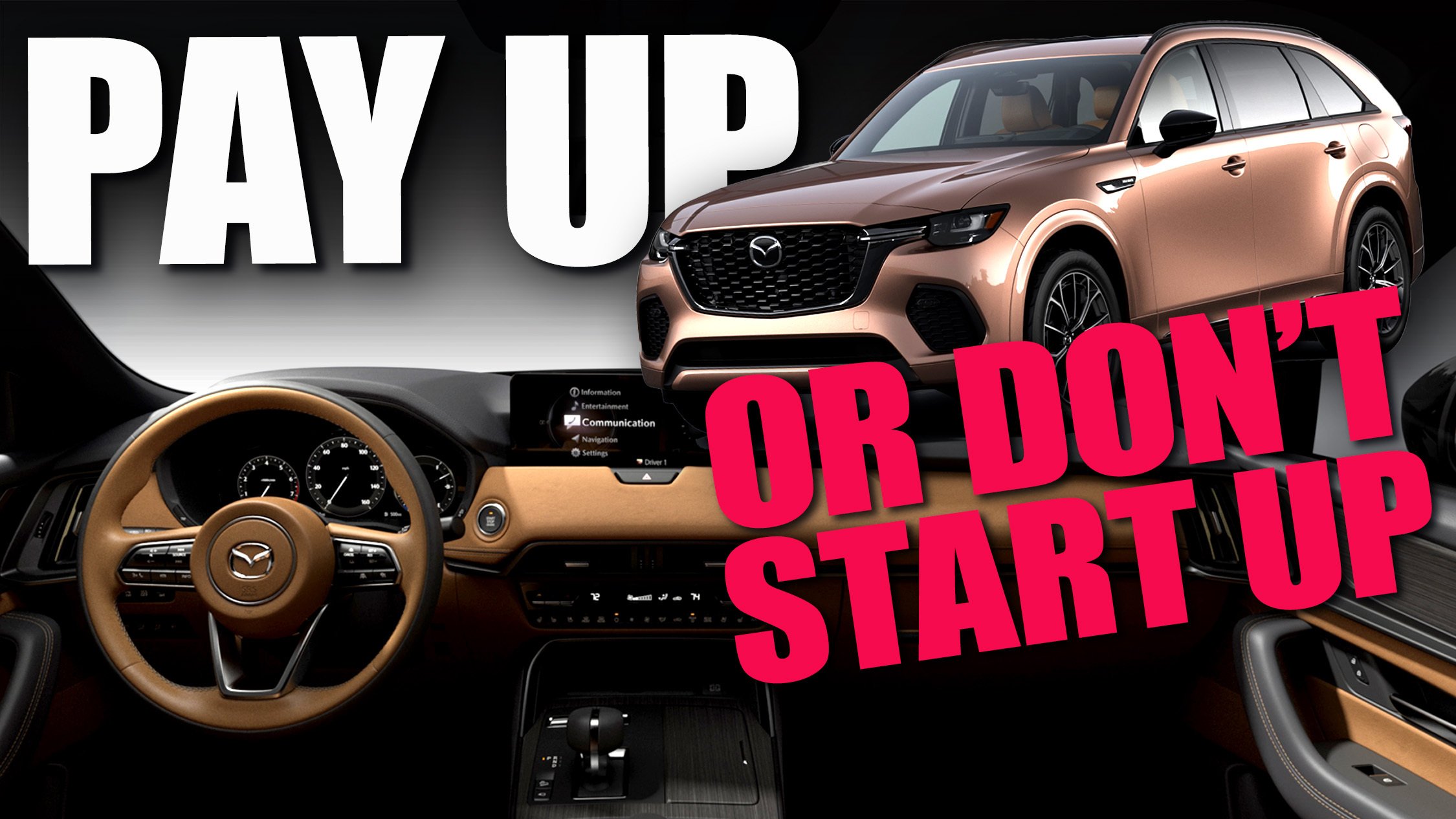Mazda recently surprised customers by requiring them to sign up for a subscription in order to keep certain services. Now, notable right-to-repair advocate Louis Rossmann is calling out the brand.
It’s important to clarify that there are two very different types of remote start we’re talking about here. The first type is the one many people are familiar with where you use the key fob to start the vehicle. The second method involves using another device like a smartphone to start the car. In the latter, connected services do the heavy lifting.
Transition to paid services
What is wild is that Mazda used to offer the first option on the fob. Now, it only offers the second kind, where one starts the car via phone through its connected services for a $10 monthly subscription, which comes to $120 a year. Rossmann points out that one individual, Brandon Rorthweiler, developed a workaround in 2023 to enable remote start without Mazda’s subscription fees.
However, according to Ars Technica, Mazda filed a DMCA takedown notice to kill that open-source project. The company claimed it contained code that violated “[Mazda’s] copyright ownership” and used “certain Mazda information, including proprietary API information.”



Those things are free…for now….while they feel like it. There’s nothing stopping them from charging for that stuff when their stock price dips another 20%.
They could change it for cars purchased in the future, but they can’t do what Mazda did and start charging for it now. So its either lifetime of free Standard connectivity, or at worst 8 years. These are part of the purchase agreement.
“All new Tesla vehicles ordered on or before July 20, 2022, will have Standard Connectivity features at no cost for the lifetime of the vehicle (excluding retrofits or upgrades required for any features or services externally supplied to the vehicle – e.g. telecommunications network). As additional features and services become available in the future, you will have the opportunity to upgrade your connectivity plan.”
source
I still don’t understand how that stops them from charging a subscription when their stock drops a bit more.
Contract law.
You know that “Terms and Conditions” you agree to all the time that binds you to things. It binds them too to those terms. The terms I posted above were what both car buyers and Tesla agreed to at the time of purchase.
The same courts that continue to allow the sale of “Full Self Driving”? You have a lot of faith in a system that has aggressively and repeatedly shown that it does not care about you.
There are many legitimate complaints about Full Self Drive. I’m happy to respond to you but which specific complaints about FSD are you referring to?
This website is probably a good start. I mainly object to the “full”, the “self”, and the “driving”.
Edit: but that’s not really the point of the discussion right now, my point t was more that: yes, I agree that’s what some written words on a website say in terms of what they promise, but my point is that they can literally just alter that any time and there is less than zero recourse for the consumer to do anything about it. You can’t disable updates. You signed away your right to sue them. You won’t get anywhere crying to the press because the headline “Tesla breaks promise made to customers” is just another day that ends in Y.
I can absolutely sue Tesla.
Ok, let’s grant that as true (by that I mean we will ignore arbitration as a whole thing). Suddenly Tesla stock drops, again, and they push an update that puts remote unlock and navigation and heated seats behind a subscription requirement to boost revenue. Your car will lose those functions immediately with no input from you. Then you file a lawsuit. You will not be granted an emergency summary judgment. Which means your car will immediately lack those capabilities. Absolute best case scenario in 5-7 years your car will get the features back after it has turned into a pile of rust. The expected outcome is you will get a class action settlement (which again, you actually signed away your rights to) that cuts you a check for a few hundred dollars. That will only happen well after the expected service life of the vehicle you “own”.
If you read this and think I’m just a cynical jerk, please provide me just one example where the individual consumer won a lawsuit in the US against a large vendor when features were removed after a software update and was made whole in a timely manner. Just one is all I ask for.